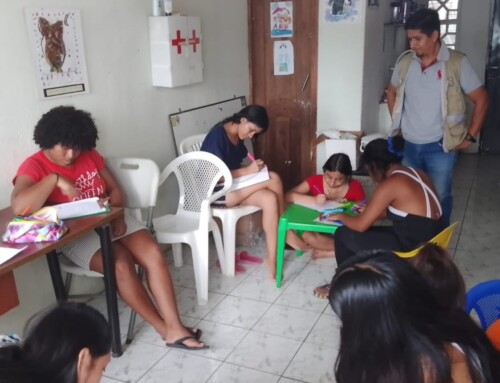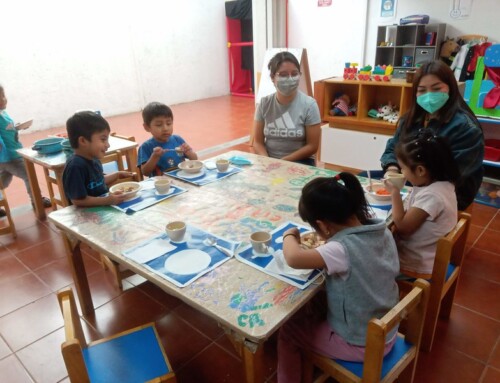The impact on communication is not an outcome of poverty that is regularly reported. Even in the UK, it is estimated that poorer children are a year behind in terms of language skills than those from wealthier backgrounds.
While limited or aggressive communication at home means that children don’t learn enough oral communication skills and do not develop cognitive skills easily, relationships and behaviour also quickly suffer with the long-term effects clear.
Because of this, our partner in South Africa, New Life, looked to begin a new programme helping improve parent-child communications through the development of a brain game to stimulate intellectual activity, as well as encourage fun and positive conversations.
The basis of the strategy is for the parent and children to play a pick-up-sticks game, with four main outcomes:
- It sets a goal i.e. there is a specific outcome to be achieved which in turn gives a sense of purpose
- It prescribes rules i.e. limitations are placed on how to achieve the goal, pushing players to explore different possibilities. This neurochemistry unleashes creativity and fosters creative thinking while helping children to understand life has boundaries
- It provide a feedback loop i.e. conversations can detail how close players are to achieving their goal, can motivate creativity and encourage everyone to keep playing
- It allows participation to be voluntary i.e. since everyone freely accepts the goals and rules and can leave at anytime, people understand that they have the right to be involved in making decisions, planning and reviewing an action that might affect them. Having a choice gives them a voice
The scoring of the game is based on eight basic principles of positive communication. The higher the level and number of types of interaction, the better the score.
The games are also videoed and then watched by the parents, children and the therapist who helps the parents and children learn further from the activity. This guidance in turn strengthens the level of sensitivity shown and the mentalising abilities of the parents so that they can better understand their state of mind and control their own behaviour.
And all these positives are marked on a diagrammatic brain of the child to motivate the parent to add more positive notes during future play and at home.
The International Children’s Trust and New Life have been delighted by the extraordinary success of the programme, and more work is being done to encompass more families and assess whether this initiative can help other programmes we deliver.






